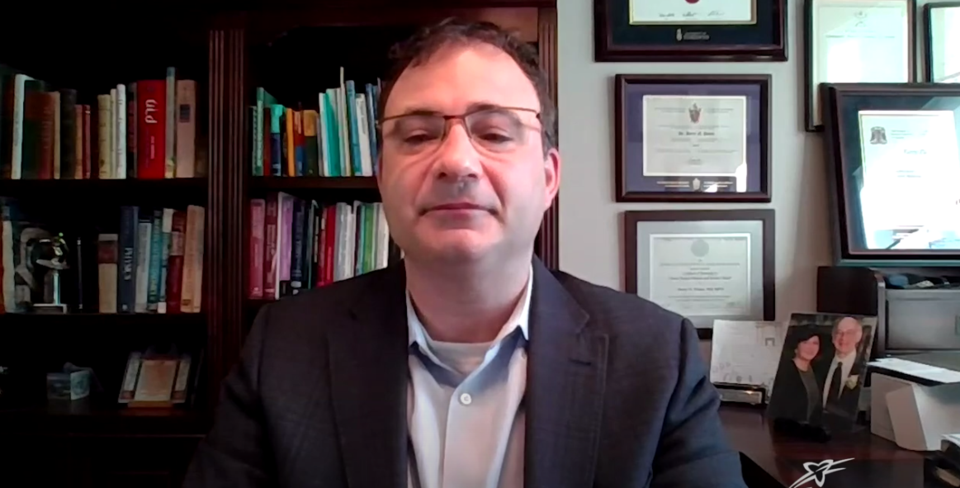York Region remains stable in terms of key COVID-19 indicators despite pronoucements that Ontario is now in a sixth wave, according to the medical officer of health.
Although the regional wastewater signal and cases are increasing, it is doing so less dramatically than in other places like Ottawa, Dr. Barry Pakes said in a video update today.
He said the recent increases are “what some are calling a sixth wave,” but added the current impact of rising cases has not yet been felt in local hospitalization levels.
“We’re still watching it carefully,” Pakes said of the regional wastewater signal. “Most importantly, we’re watching to see if hospitalization — which has been stable over the past several weeks — starts increasing. Fortunately, our high booster vaccination rate is preventing many from ending up in hospital.”
Some health experts have said Ontario is now in the midst of a sixth wave, with cases rising following the removal of public health measures. That has prompted calls for a renewed focus on vaccinations.
However, York Region’s wastewater signal remains less than half of its Omicron peak as of April 1. Local hospitalizations also have yet to spike, with 30 in the region hospitalized as of April 1, compared to 244 at their peak Jan. 19.
Pakes told NewmarketToday it is "too soon to tell whether it's a wave or more of a gentle ripple."
"It’s pretty clear if we just look at transmission itself in the wastewater that this is a wave. But how that impacts us as a society and individuals has yet to be seen."
He said the wave will only be "really impactful if it translates to hospitalizations and deaths." He added that it is definitely a new phase and indicators are increasing.
Pakes said it remains important for you to get your booster dose if you have not. The booster vaccination rate still lags behind two-dose coverage, with 56.3 per cent of eligible residents 12 and older at three doses, compared to 89 per cent at two doses.
He added that public health is getting many questions about fourth doses, not yet available to the public outside of long-term care settings and those with certain health conditions. Pakes said more information on that should come soon.
Pakes said he is glad to see the public remaining respectful and continuing to wear masks. Most local respondents said they are OK with others asking them to mask.
“Though it’s now a personal choice, most York Region residents are continuing to wear masks to protect themselves and others,” Pakes said. “This is one way that we have been slowing transmission and preventing a dramatic increase in cases in the weeks to come.”
He advised the public to isolate if they have any COVID-19 symptoms. He also suggested rapid tests ahead of gatherings for upcoming holidays.
“Spring is in the air, and it’s a great time to get outdoors, where COVID-19 transmission is less likely,” he said.
